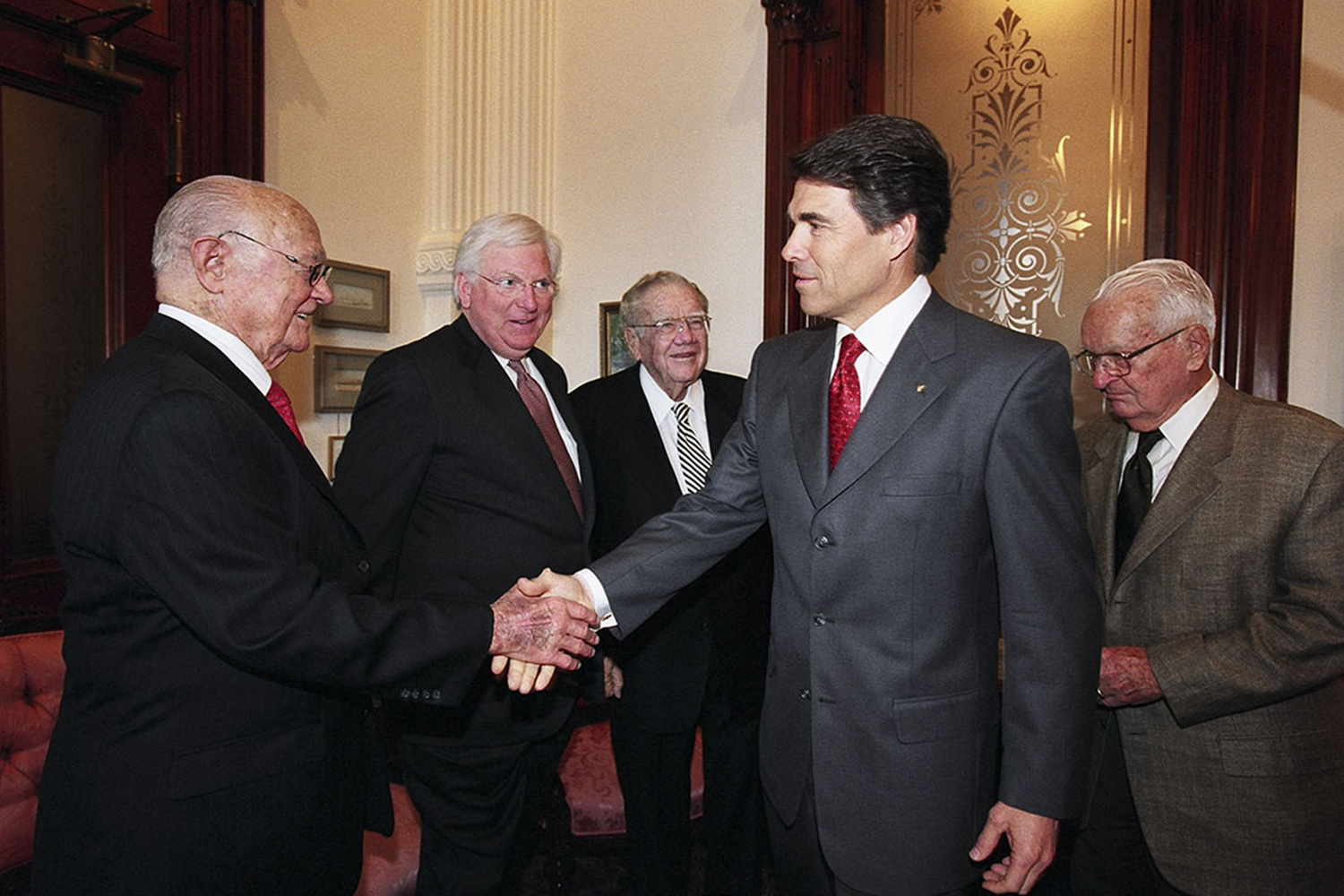Former Texas Gov. Mark White dead at 77
Editor's note: This story has been updated throughout.
Mark White, a Democrat who served as the governor of Texas from 1983 to 1987, has died at the age of 77.
During his time in office, White's most notable achievements came in education reform. In 1984, he signed landmark legislation that included the famous "no-pass, no play" law that said students must pass their classes to be eligible to participate in extracurricular activities.
In a statement Saturday afternoon, Gov. Greg Abbott said that White devoted his life to making Texas better. Abbott also noted that his relationship with White dated back to when he was a young lawyer in Houston.
"Mark’s impact on Texas will not soon be forgotten, and his legacy will live on through all that he achieved as Governor," Abbott said.
Bill Hobby, who served as Texas' lieutenant governor from 1973 to 1991, called White "one of Texas' greatest governors."
Former Presidents George H.W. and George W. Bush also offered statements of condolences and praise for White's service.
"His tenure as governor came during the stormy economic times of the early to mid-1980s, which led Mark to do two things that are an everlasting credit to his rich legacy – he laid the groundwork for diversification of the Texas economy, and he made significant investments in improving education in our great state," the elder Bush said.
George W. Bush also praised White's focus on public education and said he "served the Lone Star State with enthusiasm and dedication."
Mark Wells White Jr. was born in Henderson, Texas, on March 17, 1940. He attended Baylor University, where he earned a bachelor’s degree in business administration, and Baylor Law School, where he earned a law degree. In 1973, after a seven years of practicing law as an assistant attorney general and in the private sector, he was appointed secretary of state by Gov. Dolph Briscoe. Four years later, White became the youngest secretary of state to be elected president of the National Association of Secretaries of State.
White was elected attorney general in 1978, the same year Bill Clements was elected the first Republican governor of the state since Reconstruction. White’s opponent in that AG race was James Baker III, who later became White House chief of staff and U.S. secretary of state.
White and Clements tussled constantly, and White successfully challenged the Republican in 1982 — the last election in which Democratic candidates swept the statewide ticket from top to bottom. In a rematch four years later, Clements won back the Governor’s Mansion.

White tried again in 1990, when Clements was leaving office, and came in third in a rough-and-tumble Democratic primary against state Treasurer Ann Richards and Attorney General Jim Mattox — both of whom had been elected in the same 1982 sweep that made White the state’s 43rd governor. The former governor received less than 20 percent of the primary vote in that race — his last for public office.
As governor, White put together a blue-ribbon panel — chaired by Dallas businessman Ross Perot Sr. — to overhaul the state’s public education system. The education reform legislation that resulted from the panel's recommendations included a controversial effort to rate teachers and the “no-pass, no-play” rule.
According to the Chicago Tribune, White aired a television advertisement in 1985 to garner support for the controversial initiative.
“The other day a mother told me that her son couldn't play on the local high school football team because he had failed his English courses,” White narrated in the ad. “I asked her if she agreed with me that her son needed to pass before he could play. She kind of looked down and then she looked me straight in the eye.”
“His father and I didn't send him to school to play,” White recalled the woman saying. “We sent him to learn. Even if he makes the team, he won’t be a professional ballplayer. But if he doesn't pass his classes, he'll never be a professional anything.”